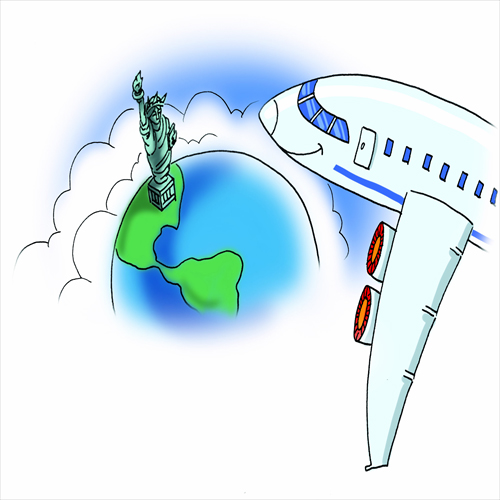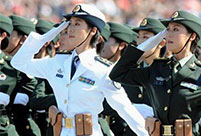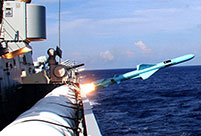


Illustration: Liu Rui/GT
Ever since 2015 began, strong voices and heated debates have been heard in the US academic and strategic circle on changing the grand US strategy toward China.
Michael Pillsbury, former assistant under secretary of defense for policy planning, published The Hundred-Year Marathon: China's Secret Strategy to Replace America as the Global Superpower.
David Shambaugh, a professor of international affairs and director of the China Policy Program at George Washington University, wrote an article on The Wall Street Journal entitled "The Coming Chinese Crackup."
Council on Foreign Relations released a special report "Revising US Grand Strategy Toward China" by Robert Blackwill and Ashley Tellis in April.
All of them basically asked the US government to wake up and change its strategy toward China, namely to "balance" China's rise.
Fortunately, we still have some other voices. Stephen Hadley, former national security advisor to president George W. Bush, and Paul Haenle, director of the Carnegie-Tsinghua Center, published an article "The Catch-22 in US-Chinese Relations" on Foreign Affairs, pointing out that the two countries should make a compromise where China removes its reference to core interests and the US accepts the new type of major-power relations concept in order to build a more constructive and positive relationship.
Jeffrey A. Bader, former senior director for Asian affairs on the National Security Council, wrote a paper in June, believing that the US should not abandon the approach taken by eight presidents since Nixon, because the policy toward China "built and nurtured the US-China relationship and built a generation of peace in Asia."
The heated debate shows no sign of abatement due to several negative factors at play. One fundamental factor is the weakening of the US willingness to engage China in the international system.
After China's reform and opening-up, the dominating thinking in the US was to shape China's development path by engaging it into the international system. But to US dismay, China has embarked on its own way to achieve successful development and some US scholars and officials began to doubt China's role in the international arena, arguing that China is a "free-rider" and harbors the intention to upend the existing international regime.
Meanwhile, the US tries to create new mechanisms like the Trans-Pacific Partnership, the objective of which is obviously the exclusion of China and the setting up of new global rules and standards.
Second, the US is entering the presidential election cycle. To catch the eyeballs and spin the voters, the strategy toward China will become a hot topic among candidates.
From Hillary Clinton to Ted Cruz, most candidates take a tough stance on their China policy. No matter who wins the election, he or she will understand the bottom line of bilateral relations and be more reasonable and practical. Yet the atmosphere in the near future could still be unfavorable.
In addition, the China experts in US academic and strategic circle are undergoing a generation change. It is hard to discern but might have a long-lasting effect.
The old generation of "China hands" like Kenneth G. Lieberthal, Stapleton Roy, Alan Romberg, Ezra Vogel and Douglas Paal are gradually being replaced by the new generation like Ely Ratner, Abraham Denmark, Melanie Hart, Jessica Chen Weiss, and so on.
The change is coming and the divergence between the two generations is huge. The old generation knows much more about China's history and witnessed China's reform and opening-up, while most of the new generation have a background of international relations, grew up in a background where the gap between the two countries is narrowing and thus are prone to perceive China's development from a realist viewpoint.
Frankly speaking, the environment for China-US relations is not so good, but is far from a "showdown moment." Under such circumstances, the first state visit to be paid by Chinese President Xi Jinping to the US is extremely important, since it will dispel the noises and inject positive energy into the bilateral relations. On the US part, President Barack Obama is eager to secure his own diplomatic legacy and has high expectations for Xi's visit.
China and the US should grasp the opportunity to maintain strategic stability to ensure the relations on the right track, focus more on increasing mutual understandings and further expanding cooperation during Xi's visit.
For instance, on climate change, the two countries should consolidate the common ground, carry on the momentum and might release another joint announcement to create favorable atmosphere for the upcoming Paris Climate Conference. On thorny issues like cyber security which can hardly be avoided, the two sides should seek breakthroughs and try to reach a consensus on formulating basic norms.
The author is an assistant research fellow at the Institute of American Studies, China Institutes of Contemporary International Relations.
 Shocking scenes found in 4000-year-old earthquake relic
Shocking scenes found in 4000-year-old earthquake relic Female soldiers add color to military parades
Female soldiers add color to military parades Taiwan campus belle with gorgeous look
Taiwan campus belle with gorgeous look  Stunning photos of China’s fighters and airborne troops
Stunning photos of China’s fighters and airborne troops Mums stage breastfeeding flash mob
Mums stage breastfeeding flash mob PLA South China Sea Fleet conducts live fire exercise
PLA South China Sea Fleet conducts live fire exercise Beauty of Tsinghua University transforms into car model
Beauty of Tsinghua University transforms into car model Official shot having sex with two college girls
Official shot having sex with two college girls Moscow “spider-man” climbs Chinese skyscraper
Moscow “spider-man” climbs Chinese skyscraper Fiery freezer
Fiery freezer Bearly getting along
Bearly getting along Top luxury firms struggling in China
Top luxury firms struggling in China Japan reads too much into WWII parade
Japan reads too much into WWII paradeDay|Week